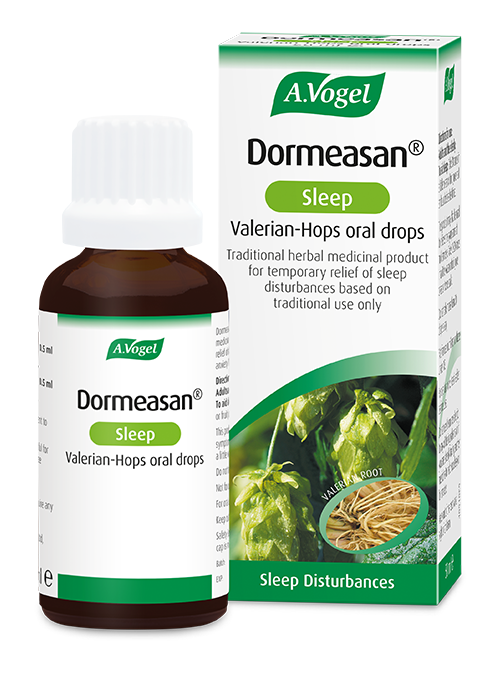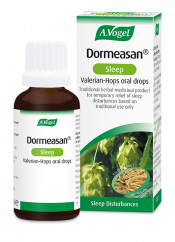What is Restless Leg Syndrome (RLS)?
Restless Leg Syndrome is often considered to be a condition of the nervous system associated with an overwhelming urge to move the legs. Sufferers often describe the urge as a creeping sensation that begins in the feet, calves and thighs, sometimes accompanied by involuntary jerks, numbness and pins and needles.
It’s thought to sometimes worsen at night and, as a result, can lead to poor sleep patterns. Unfortunately, primary Restless Leg Syndrome is known as an idiopathic condition, which means it can often have no direct cause. Although genetics are thought to play a role as around 40% of primary Restless Leg sufferers have a family history of the condition. (1)
It’s also twice as likely to affect women as men as it is a frequent symptom experienced during pregnancy.
My top 10 tips to help you beat RLS
There are lots of simple things you can do to help ease restless leg syndrome, such as:
1. Stretching
Experts aren’t exactly sure how stretching helps RLS, but the evidence certainly seems to be positive, with one eight week study finding that mindful stretching helped to reduce RLS symptoms as well as improve your mood and lower stress levels. (2)
Some speculate that mindful stretching is able to help RLS so efficiently because it encourages relaxation, helping to soothe the nervous system, which may then positively influence RLS symptoms.
2. Keep your mind active
When restless legs strike it can be very easy to become fixated on your symptoms. The more you want your legs to keep still, the more it seems they will continue to jerk and twitch. That’s why, instead of lying and becoming more and more stressed, it might be an idea to try and keep your mind occupied.
Now this doesn’t mean you should reach for your smartphone and start scrolling through social media – it might divert your attention for a few minutes but, in the long run, it won’t do any favours for your sleep patterns. If you need to, get up and walk around, read a book or do a puzzle – anything that keeps your attention away from the sensations in your legs is bound to help, providing that it is a relatively relaxed activity that isn’t too stimulating!
3. Soothing heat
When it comes to soothing your muscles, a nice hot bath usually works a treat. Not only will this help to relax your muscles, but it’s also a good way of helping you to unwind before bedtime.
For the best results, try adding some Epsom salts to your bath – these contain magnesium, which can naturally help to soothe your muscles, hopefully reducing the symptoms of RLS.
4. Cold treatments
If you don’t fancy heating things up, you could try cooling them down. Cold treatment helps to numb any aches and pains and can even slow down nerve impulses, which may help to prevent any spasms or twitching.
However, just be careful when using this method. Make sure you’re not applying the cold compress for too long, around 20 minutes should suffice, and never apply a compress directly to an open wound!
5. Avoid exercising too close to bedtime
If you have restless legs, exercising regularly during the day can be a great help, especially if you suffer from circulatory problems such as varicose veins. A little brisk movement can help to get the blood pumping around your body and can even release endorphins, the happy hormones, helping to improve your mood.
One study in 2006, even found that aerobic exercise, done 3 times a week, might be able to significantly reduce RLS symptoms. (3) However, while exercising during the day is all well and good, if you decide that hitting the gym just before bed might be a good way to tire you and your legs out, you’re wrong.
If you over-exercise, it can exacerbate RLS symptoms and working out too close to bedtime may potentially make it harder for you to fall asleep, meaning that you’re more conscious and aware of any discomfort or spasms.
6. Cut down on caffeine
Caffeine acts a stimulant in the body and is well known for interacting with sleep, however, when it comes to restless legs, caffeine can also increase other neurotransmitters in the brain, like norepinephrine, which can promote restlessness and hyperactivity – not what you want if you suffer from restless legs!
However, while most people are aware of caffeine’s influence, they don’t always understand how long the effects of caffeine can linger. It can sometimes take as long as 6 hours for caffeine to leave your system and this can sometimes take longer depending on whether or not you are on certain medications, like the contraceptive pill.
That’s why, if you must have a cup of tea or coffee, I’d recommend keeping it to the morning. As tempting as it might be, try to resist having a brew in the afternoon and instead opt for caffeine-free herbal teas or coffee substitutes like our own Bambu, which contains a rich blend of Turkish figs and chicory, helping to refresh and revitalise without upsetting your nervous system.
7. Massage your legs
Giving your legs a little massage might just help to relieve some of the symptoms of RLS, according to research. One case study, conducted in 2007, found that a 45 minutes massage, twice a week improved one woman’s RLS symptoms dramatically. (4)
This is possibly due to the stimulating effect that massages can have on our circulation or perhaps because massaging can increase our levels of dopamine. Either way, it gives you an excuse for a little extra pampering so I’d definitely recommend making an appointment in the near future!
8. Acupuncture
Acupuncture? As in that thing where they stick needles into your skin? You’re probably thinking ‘no thanks!’ but acupuncture has demonstrated its ability to help treat a range of conditions so I wouldn’t be so quick to dismiss it.
Research even appears to be on acupuncture’s side as one 2015 study found that participants who had RLS and were treated with acupuncture showed reduced abnormal leg activity! (5) Admittedly, more research is needed but so far, the results do seem to be positive!
9. Watch what you eat
What you eat might just be having an impact on your RLS symptoms. For a start, we know that nutritional deficiencies, such as low levels of iron and magnesium, can act as triggers for the condition so I would start by focusing on foods rich in these minerals – spinach, avocados, cashews, almonds, wholegrains, lentils and pulses are a good starting place.
Once you’ve addressed your intake of these pivotal nutrients, it might be time to also consider the foods that you should be avoiding. I’ve already mentioned the effects of caffeine on your nervous system, but other foods that are high in sugar or processed fats should also be restricted. Not only can these affect your circulation and nervous system, but they can also influence your waistline – remember, obesity is a leading cause of RLS!
It may not have a direct impact, but staying hydrated is extremely important too! Dehydration can affect your sleep patterns and will make you feel more fatigued during the day. Try to consume at least 1.5L of plain water a day – fizzy drinks and fresh fruit juices don’t count!
10. Try these herbal helpers
If restless legs are preventing you from nodding off at night, it might be worth considering a gentle herbal remedy. I often recommend a combination of Valerian and Hops to help relax the nervous system and allow you to unwind.
Our Dormeasan remedy should be able to provide relief from sleep disturbances and, if you feel as though stress is fuelling your symptoms, it should be able to help you calm down, enabling you to fall into a deep, natural sleep, unhindered by grogginess the following morning.
Another common cause of restless legs is poor circulation in the legs, with conditions like varicose veins often being accompanied by RLS symptoms. Fortunately, we have two excellent remedies that can help to promote healthy circulation in the legs – Ginkgo biloba and Venaforce.
Ginkgo has a long history when it comes to herbal medicine and is traditionally used to help improve your blood flow and circulation, while Venaforce helps to strengthen the veins in the legs, easing the symptoms of varicose veins. We also offer a topical horse chestnut gel, Venagel, which can be applied directly to your legs to soothe any aches or heaviness.
What causes Restless Leg Syndrome at night?
Triggers: Primary RLS might be thought to be idiopathic but there are some triggers associated with the condition, as I identify in my blog, ‘7 reasons for restless legs at night.’ Factors such as poor circulation, lack of exercise, certain nutritional deficiencies and pregnancy can play a role but here are a few additional triggers and issues that may worsen your symptoms.
Dopamine: Research is starting to indicate that some forms of RLS could be related to a dysfunction with your Basal ganglia, the structure in the brain that is responsible for involuntary movements. When this part of the brain is affected, it can impact your production of dopamine, a neurotransmitter that can help to control muscle movement and coordination. Usually our levels of dopamine are lower in the evening, which may explain why symptoms occur before you go to bed. (6)
Fibromyalgia: Many sufferers of fibromyalgia are also afflicted by RLS, with one study finding that 64% of participants who had fibromyalgia also suffered from RLS. (7) Although the underlying connection between the conditions is still unknown, it’s believed that they may both share similar mechanisms in the nervous system and brain.
Stress: Stress might not directly cause RLS, but it can certainly make the symptoms appear worse by heightening your awareness of them and instigating a stress reaction that may further prevent you from getting to sleep.
Substances: Alcohol, caffeine and nicotine can similarly affect your RLS symptoms, disrupting your sleep and worsening your deprivation.
Medications: Certain medications like antidepressants, lithium and antihistamines have sometimes been known to make RLS symptoms worse. (8)
Originally published 14/04/18, updated 07/04/21









